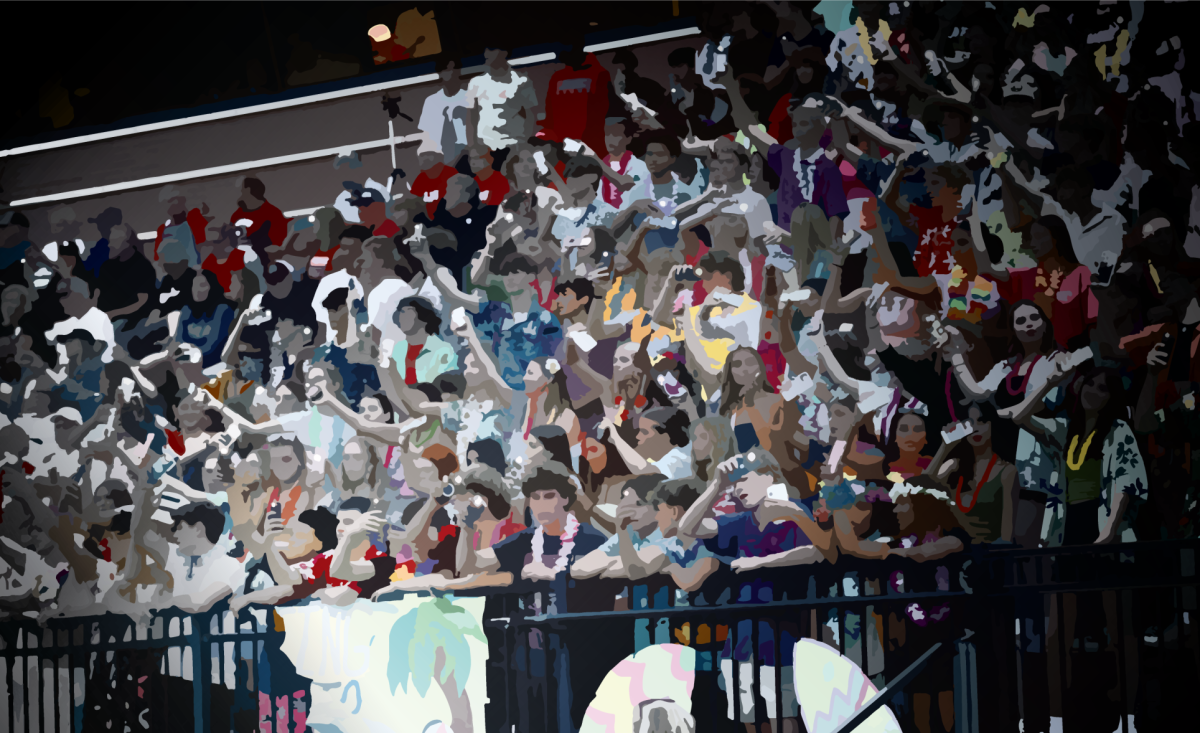Film industry blatantly whitewashes characters of color
Americans take pride in how progressive and multicultural we are, yet the film industry says otherwise
April 30, 2014

As time progresses, film has become a stronger medium to convey various ideas, lifestyles, inventions and predictions around the globe.
Film is one of the strongest, most widespread ways to share ideas worldwide. With the integration of the internet, access to these films has never been easier.
“I think that we are not always aware of how much film and TV can dictate the way we live subconsciously,” senior, Film III student Maya Brinton said.
We have extravagant annual events that are broadcasted across the nation where people come together and award the best films and their creators with golden awards and the winners, alongside their supporters, hold these prizes dearly. Among these events, one of the most popular is, The Oscars.
However, the problem with this affair, a ceremony to award to those involved in the film industry, is that it is predominantly white people who are involved and awarded for their involvement.
A 2013 study conducted by “Los Angeles Times” revealed that the members of The Academy are 93 percent white and 76 percent male.
Academy Award members have awarded four Asian, six Latin American and 15 black actors with Academy Awards over the course of 85 years that The Oscars have been held.
Some may argue that the minuscule amount of awards given to actors of color is due to the lack of actors of color in the film industry, but I believe that it is due to the lack of chances that actors of color are given compared to their white counterparts.
“I typically see a lot more white actors,” junior, Film III student, Jack Rischer said. “But recently there’s been more diversity in the film industry than 50 years ago. But [there are] still a lot more white actors. When I think about actors, I think like Brad Pitt or something.”
White actors dominate the film industry.
I believe this is a cause of the glorification of European beauty and racial preference within America.
“I think that it is bad when someone would cast a white actor for a person of color’s role,” Brinton said. “I think it is done a lot because it is a very white-dominated industry.”
Often, white actors are chosen to play characters who were historically, or described as, non-white.
This act of “whitewashing” has been seen commonly across the timeline of film history. In the past, Paul Muni and Luise Rainer in “The Good Earth” (1937), Burt Lancaster in “Apache” (1954), Mickey Rooney in “Breakfast at Tiffany’s” (1961) and Elizabeth Taylor in “Cleopatra” (1963), were all non-white characters portrayed by white characters, often using crude makeup and special effects to make the actors look more ethnic rather than just picking an actor who is the real deal.
However, this disgustingly insulting act has not been left in the past.
More recently, Jake Gyllenhaal in “The Prince of Persia: The Sands of Time” (2010), Johnny Depp in “The Lone Ranger” (2013), Benedict Cumberbatch in “Star Trek: Into Darkness” (2013), and Rooney Mara in “Pan” (2015) have all been recent acts of whitewashing in the film industry.
Actors of color are overlooked and diminished to racial stereotypes, supporting roles and extras in the film industry. You’d think that roles so blatantly of a person of color would actually be given to an actor of color who is not only visually accurate, but does their job well, but sadly this is not the case.
“It’s very easy for white producers and white directors to connect with white people first and get their representation across through that white actor,” junior, Film III student, Clara Lehr said. “I think that a lot of the time there is a root of the role that would come across much better, but isn’t displayed because it feels dangerous to a lot of people in Hollywood or the film industry.”
In movies in which the leading character is a person of color, the audience is given a white actor for the role or the person of color is a character with negative traits.
For example, hero movies are probably the utmost example of glorifying a specific character in film, but when we think of our superheroes, all of the well known ones are white.
The only superhero movie that I am familiar with that features a non-white actor is Hancock, in which Will Smith played the leading role. However, Hancock started as a drunk that everyone hated only to be rehabilitated by a white family after which, he is loved and admired as a hero.
I am no film buff by any means, but what I’ve found is that when a person of color is in a film, their character has to be written around the fact that they are not white.
I have not seen a movie about a quirky, teenage black girl who falls in love with an enigmatic Latino boy from her math class. But how many movies have been written around the basis of quirky, young, white love?
I have no superheros who look like me or cheesy romantic roles I can imagine myself as.
The only movies I have seen myself largely represented in films are in movies about slavery, gang violence and domestic abuse, but I will never seen myself in films similar to “Juno” (2007) or “Submarine” (2010) or a film directed by Wes Anderson. Those roles are reserved for white actors.
The only time feature films have a person of color as the leading actor is when a plot is centered around how black, or how Asian or how Latino the actor is. Rarely are films made about a person who does interesting things, who just so happens to be a person of color. It’s as if being white is seen as a default of a person, but with all non-white characters, the audience needs some sort of clarification as to why they are not white.
White actors are given an abundance of narrations and variations to their lives and plots within films. All the while, non-white characters are left to marginalized stereotypical mannerisms and lifestyles, or as useless characters who would not make a difference if their character were taken out of the film.













